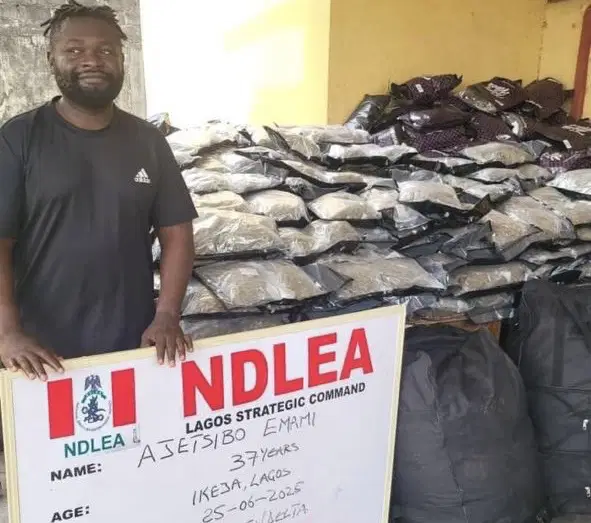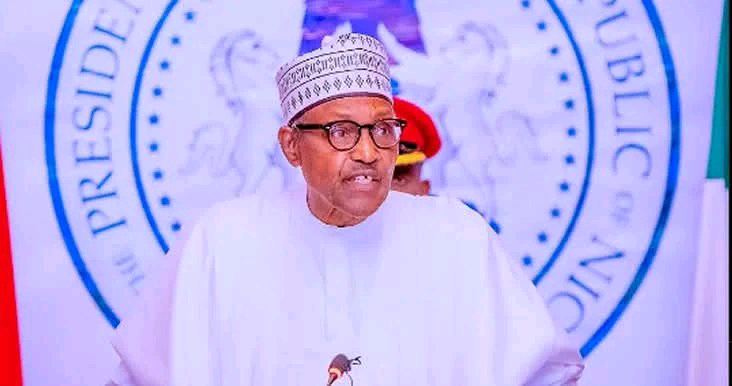The Presidency, on Wednesday, described as outrageous and travesty of justice the acquittal of Senate President Bukola Saraki by the Code of Conduct Tribunal, which upheld the no-case submission of the Senate President.
The Special Assistant to the President on Prosecution, Mr. Okoi Obono-Obla, wondered why the CCT dismissed the weight of “overwhelming evidence” against Saraki, who was tried for false asset declaration by the Federal Government.
The CCT in Abuja had discharged and acquitted Saraki of all the 18 charges of false asset declaration and other related offences preferred against him.
The two-man panel of the CCT, led by its Chairman, Danladi Umar, unanimously upheld the no-case submission, filed by Saraki after the prosecution closed its case with 48 exhibits tendered and after the testimonies of the fourth and the last prosecution witness on May 4, 2017.
But the Transparency International (Nigeria) and a chieftain of the defunct National Democratic Coalition, Mr. Ayo Opadokun, among others, described the judgment as sad and a calculated attempt to frustrate the war against corruption in the country.
The CCT chairman, Umar, in his lead ruling, exonerated Saraki of all the charges on, among other grounds, the failure of the prosecution to obtain Saraki’s statement and make it part of the proof of evidence.
He described as “absurd” that neither Saraki’s statement nor the report of investigation said to have been carried out was produced before the tribunal.
He agreed with the defence team, led by Chief Kanu Agabi (SAN), that the prosecution’s evidence had been manifestly discredited during cross-examination by the defence.
He added that the evidence adduced by the prosecution, led by Mr. Rotimi Jacobs (SAN), was “so unreliable that no reasonable tribunal could convict” anyone based on it.
Umar also noted that the evidence of the first prosecution witness, Mr. Michael Wetkas, an operative of the EFCC, was unreliable.
Concerning the evidence of the second prosecution witness, Mr. Amazi Nwachuckwu, Head of Funds Transfer Unit of the Guaranty Trust Bank, Umar noted that the witness had testified that documents relating to alleged foreign transfers by Saraki had been consumed in a fire incident, adding that there was nothing to prove the charges that were based on the documents.
Lawyers and Saraki’s supporters in court burst into wild jubilation as soon as the tribunal made the pronouncement exonerating the Senate President on Wednesday.
While the lead defence counsel, Agabi, thanked the tribunal for the ruling, the counsel, who led the prosecution team at the Wednesday’s sitting, Mr. Pius Akutah, told journalists that the prosecution would review the ruling “in order to determine the next step”.
The charges instituted against Saraki before the CCT related to the alleged breaches of the code of conduct for public officers, acts which were said to be punishable under the Constitution and the CCB/CCT Act.
He allegedly committed the breaches by making false declaration of his assets while being the governor of Kwara State between 2003 and 2007 for his first term and between 2007 and 2011 for his second term as governor and from 2011 to 2015 as a Senator.
Among the breaches were that he obtained N375m loan from Guaranty Trust Bank Plc in 2010, converted it to £1,515,194.53 and transferred the sum to the United Kingdom for full and final mortgage payment for a London property.
Additional charges against him included allegation that he continued to receive salary and emoluments as governor of Kwara State after the expiration of his tenure and at the same time, from the Federal Government as a Senator between June 2011 and October 2013.
He was also said to have failed to declare to the Code of Conduct Bureau on assumption of office as Governor of Kwara State in 2003, his leasehold interest in the property at 42 Remi Fani-Kayode Street, Ikeja, Lagos.
The prosecution also alleged that while being a public officer, the ex-governor operated bank accounts outside Nigeria and failed to declare the foreign accounts to the CCB while being governor and a senator during the period.
Properties that were allegedly falsely declared by Saraki included 17, 17A and 17B McDonald, Ikoyi, Lagos; Plot 2A Glover Road, Ikoyi, Lagos; 37A Glover Road, Ikoyi, Lagos, which he allegedly bought through Carlisle Properties; No. 1 and 3 Targus Street, Maitama, Abuja, otherwise known as 2482, Cadastral Zone A06, Abuja.
The Supreme Court had on February 5, 2016 dismissed Saraki’s objection challenging his trial before the CCT.
In his contribution to the ruling of the tribunal on Wednesday, co-member of the tribunal, Atedze Agwaza, who expatiated on the decision of the tribunal to free Saraki, noted that the Senate President was investigated by an illegal team comprising officials of the CCB, the Economic and Financial Crimes Commission and the Department of State Services.
He noted that such investigative team was strange to both the Constitution and the CCB/CCT Act under which Saraki was charged.
He also rejected the entire evidence of the prosecution on the basis that the evidence of the third prosecution witness, Mr. Samuel Madojemu, the Head, Intelligence Unit of the CCB, was nothing but hearsay.
Agwaza stated, “I find and hold that this apposite testimony is an affliction and epidemic that bedevilled the entire prosecution’s case and that particular evidence has rendered the whole-evidence of the prosecution invalid.
“It connotes that PW3 had no first-hand knowledge of all he said and the documents tendered. This is hearsay evidence and violates sections 37, 38 and 126 of the Evidence Act 2011.
He said the combined effect of the illegality of the investigative team and the inadmissible evidence of the prosecution was that “the charge is incurably defective” and amounted to a miscarriage of justice suffered by the defendant.
Agwaza added, “It will be fundamentally erroneous for this tribunal to call upon the defendant to prove his innocence.
“On this account, the prosecution had failed to link the defendant to the commission of the offences as charged.”

 BIG STORY3 days ago
BIG STORY3 days ago
 BIG STORY3 days ago
BIG STORY3 days ago
 BIG STORY4 days ago
BIG STORY4 days ago
 BIG STORY5 days ago
BIG STORY5 days ago
 BIG STORY5 days ago
BIG STORY5 days ago
 BIG STORY3 days ago
BIG STORY3 days ago
 BIG STORY3 days ago
BIG STORY3 days ago
 BIG STORY5 days ago
BIG STORY5 days ago




















